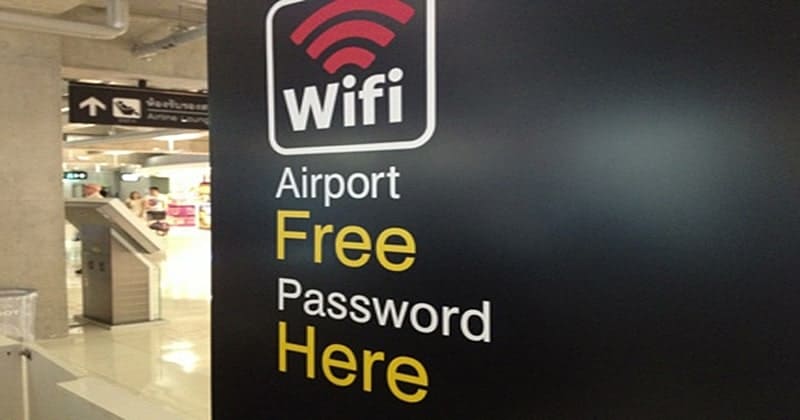Free WIFI Will Soon Be available in Schools and Airports - FG

The Federal Government (FG) is set to make free internet available in over 20 airports and schools in Nigeria, and the Federal Executive Council (FEC) has already approved it, as confirmed by the Minister of Communication and Digital Economy, Professor Isa Pantami.
The Nigerian aviation sector has recently been under fire for its subpar customer service and unkempt facilities, which have been rated as among the worst in the world. None of them offer free internet access.
But that is about to change
We examine the FG's report on implementing the free internet initiative in Nigeria's 20 airports and schools, along with its anticipated effects, the airports and schools that would benefit, and its prospects for the future.
Significance of Free Internet in Airports and Schools
According to reports from the Nigerian Communication Commission (NCC), the Federal Government of Nigeria has decided to spend over N24 billion on internet facilities across the country.
N18.95 billion to cover some universities, polytechnics, and airports, while the remaining N5.25 billion will be used to provide internet broadband for selected markets.
The significance of free internet in airports and schools borders around
Stress reduction: as many travelers may find it uneasy to keep up with both professional and personal commitments, free access to the internet at the airports will make them more comfortable and their journey easier.
Secondly, in this information age, not getting updated information in real-time might be unsettling to students. In schools with free internet, students can carry out research comfortably without worrying about internet bills.
Finally, with the ease of communication, both travelers and students need communication, whether with friends, families, teachers, coworkers, and others. With access to free internet, these people can be easily reached in case of emergencies or dialogue.
The need for free internet in Nigeria's higher learning institutions was made obvious during COVID-19, as some schools had to stop classes abruptly due to their inability to take their classes online.
Financial Implication of Free internet
It will be costly to pull off, but it is rewarding
The Federal Government bears the cost of maintenance and access, but in return, it will encourage more customers to patronize these facilities, which will attract more investors. Airports with free internet attract more flyers than those without.
Businesses can also use this means to run ads through the airports and schools' WiFi, provided all privacy rules are maintained, which in turn fetches more revenue for the government.
Beneficiaries of Federal Government's Free internet initiative
According to Minister Isa Pantami, 43 higher institutions will be connected to the internet facility, in addition to the 18 for which the FEC already made a provision of N400 million last year in November.
Out of over 150 universities in Nigeria, less than 50% have access to 24-hour free internet services.
Some of them include Lagos State University, the University of Abuja, the Federal University of Technology Akure, Ahmadu Bello University, and the University of Ibadan, among others.
The states with airports that will benefit from the initiative are both for cargo and passengers, including Lagos, Ondo, Akwa-Ibom, Enugu, Anambra, Borno, Sokoto, Kano, Gombe, Adamawa, Kwara, and the Federal Capital Territory, Abuja.
The Minister concluded by stating that the project is part of the Nigeria National Broadband Plan to achieve 70% broadband penetration in the country before the end of 2025.
Free Internet Facilities in Airports and Schools should be non-negotiable. Most airports abroad have offered free WIFI to their travelers, but Nigeria has yet to adopt such a development, which shows the country's struggle with the tech age, but hopefully, it is here to stay.


Be the first to comment!
You must login to comment